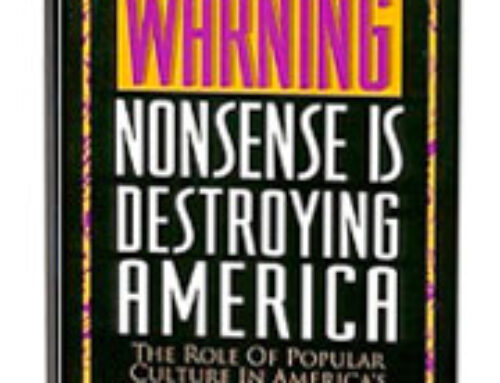
I’m thinking of cases where people can’t name a single U.S. Senator or explain the term “Bill of Rights,” don’t know where or what Crimea is, and are unable to recognize Vice President Biden’s picture even though they immediately recognize Justin Bieber’s.
For years many analysts blamed TV watching for such ignorance. Today the list of villains has expanded to include texting on smartphones, tweeting, and fixating on Facebook. “People are too busy with their gadgets to keep up with current events,” the analysts say. That’s plausible enough, but I believe a more fundamental explanation is this:
The rise of ignorance is the natural consequence of half a century of believing that the SELF is the source of all knowledge, wisdom, and goodness. As a result of this belief, many people have little interest in what goes out outside themselves.
This belief is central to Humanistic Psychology, in particular to the work of Carl Rogers and Abraham Maslow. Rogers regarded the self as the center of authority for every individual. In his view, the self is more trustworthy than the intellectual legacy of philosophers, the teachings of home, school and church, even the word of God. Moreover, reality is not something apprehended but something each person creates for himself or herself and that creation is achieved more through feelings than reason.
Consider these quotations from Rogers:
The ‘goodness’ or ‘badness’ of any experience or perceptual object is not something inherent in that object, but is a value placed on it by [the person] himself. Client-Centered Therapy, p. 139.
The criteria for making value judgments come more and more to lie in the person, not in a book, a teacher, or a set of dogmas. The locus of evaluation is in the person, not outside. A Way of Being, p. 194-95
“When an activity feels as though it is valuable or worth doing it is worth doing. Put another way, I have learned that my total organismic sensing of a situation is more trustworthy than my intellect.” On Becoming a Person, p. 22.
Both Rogers and Maslow argued that self-actualization is the highest human goal. And both believed that the path to self-actualization is self-acceptance, self-affirmation, self-trust, and most of all self-esteem. Maslow’s famous pyramid of human needs depicted self-esteem as prerequisite to learning and understanding, as well as to self-actualization.
For several generations these ideas have dominated our culture. Thousands of articles and books have expounded on them. Radio and TV hosts and guests have promulgated them. Psychologists have urged their clients to practice them. Parents and teachers have instilled them in young people. And more often than one might imagine, religious leaders have reinterpreted the Bible to accommodate these ideas. (Example: Robert Schuller’s assertion, “The core of original sin . . . could be considered an innate inability to adequately value ourselves.”)
Given the promotion of Rogers’ and Maslow’s ideas by virtually every social agency for decades, it is hardly surprising that tens of millions, and possibly a majority, of Americans have internalized them and behave accordingly. In other words:
Because they believe the source of all knowledge and wisdom lies within them rather than in external sources, they don’t read books, listen to teachers, or pay attention to current events.
Because they follow their feelings rather than reason, their notion of what is important is shallow and capricious. This explains why they are knowledgeable about Justin Bieber but not elected about officials, the Constitution, or events in Crimea.
Because they believe that they can manufacture truth to fit their own specifications, they don’t feel awkward or embarrassed when their ignorance of genuinely serious issues is exposed.
Can the current plague of ignorance be halted? Perhaps, but only by changing the mass culture that has produced it. And that task entails restoring fundamental insights traditionally understood and respected in America, notably the following:
That truth is not created but discovered.
That the process of discovery requires escaping the narrow prison of self and being aware of what is happening outside it.
That what makes events and issues important is not how we feel about them but their impact on our lives, as well as on the community, the country, and perhaps the world.
That other people’s search for wisdom, particularly people who have gained special knowledge in one or more fields, can make our advancement surer and less arduous. (This is one of the most important reasons for valuing education.)
The task of restoring these insights will be formidable, but we had better make the effort because otherwise the epidemic of ignorance will spread and be increasingly costly to our nation.
Copyright © 2014 by Vincent Ryan Ruggiero. All rights reserved

